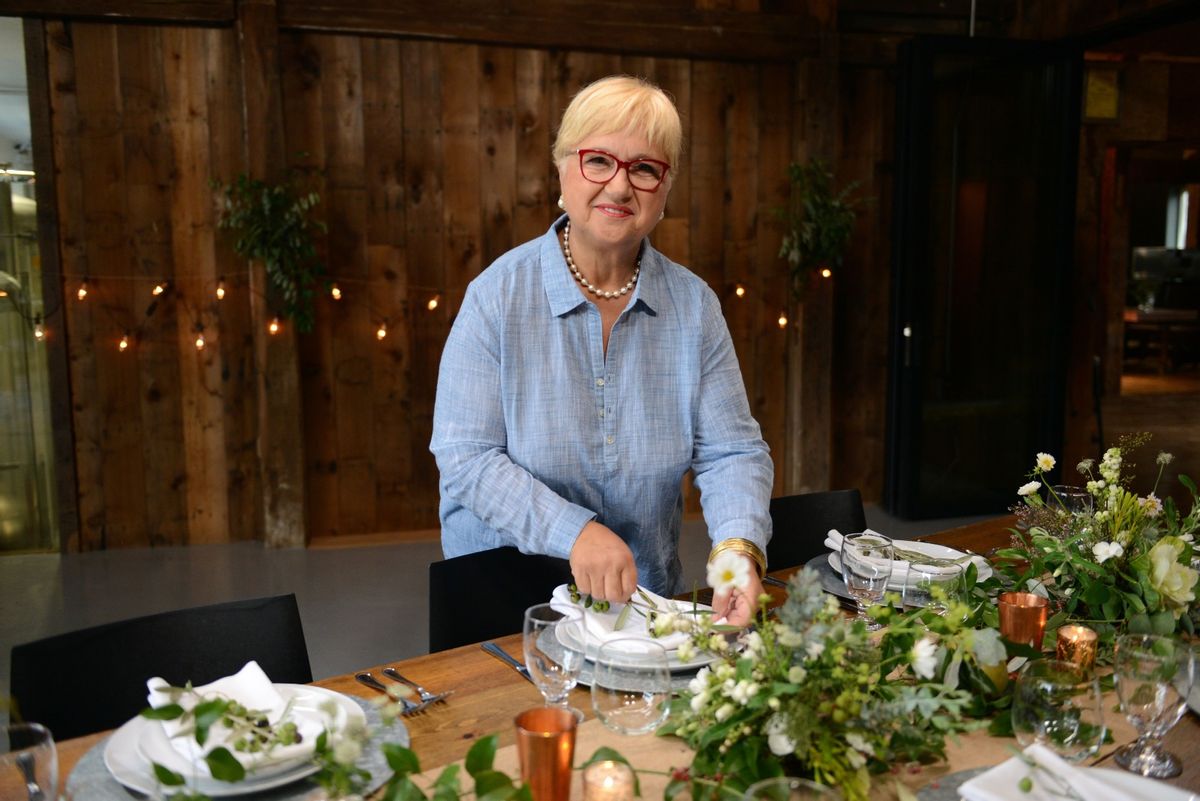For her latest cookbook, James Beard winner Lidia Bastianich decided to revisit her roots. In Felidia: Recipes from My Flagship Restaurant, the chef shares the dishes that shot her to fame on the American culinary scene for the very first time.
"We opened Felidia in 1981, and that's where I became a young chef. I started there," Bastianich recalled in a recent interview with Salon TV. "Even though we had restaurants before, I was not the chef."
Nearly four decades have passed since the iconic Italian restaurant from Manhattan's tony Upper East Side neighborhood first opened its doors. To put this unparalleled success into perspective, a majority of restaurants in the country's most competitive food scene close within five years.
"We're still going very strong," the pioneering chef said. "So I thought it was maybe about time that we pulled it all together. Why are we still there? What are the recipes that we cannot take off the menu? And in a way, you say thank you to the team that made Felidia what it is — because it's all about team."
When Chef Lidia appeared on "Salon Talks," she also revealed the secret to elevating bolognese sauce at home:
Bolognese is a sauce of two or three different kinds of ground meat. And usually it's the muscles — the tough part. And it's one way of really tenderizing it, and making it delicious and then dressing a lot of pasta with it.
The question of a good bolognese is the steps: the onions, the soffriggere, the little bit of carrots, little bay leaves, rosemary, cloves and so on down the line. You build the layers. And the slow cooking — two and a half hours, three hours for a good bolognese until the meat has sort of given all. And you'll have this kind of velvety sauce and these morsels of delicious meat. That used to be Sunday for us, and it was delicious.
Why does Lidia cook? To find the answer, she recalled her earliest childhood memories with her grandmother in Italy. Watch my interview with Chef Lidia Bastianich here, or read a Q&A of our conversation here.
***
Recipe: Ragù alla Bolognese
Makes about 6 cups
- 1 pound boneless beef chuck, cubed
- 1 pound boneless pork shoulder, cubed
- 1 pound boneless veal shoulder, cubed
- 3 tablespoons extra-virgin olive oil, plus more for drizzling
- 1 medium onion, finely chopped
- 1 medium carrot, grated
- 2 stalks celery, finely chopped
- Kosher salt
- Peperoncino flakes
- 3 tablespoons tomato paste
- 1 cup dry red wine
- One 28-ounce can whole San Marzano tomatoes, crushed by hand
- 1 pound dried rigatoni or fusilli
- ½ cup freshly grated Grana Padano, plus more for serving
Grind the meats, using a meat grinder set to the coarse plate. Pour 6 cups water into a medium saucepan, and warm to a simmer over low heat. Heat a large Dutch oven over medium heat, then add the olive oil. When the oil is hot, add the onion, carrot, and celery, and cook, stirring often, until tender but not browned, about 8 to 10 minutes.
Crumble in the ground meat and cook, breaking it up with a wooden spoon, over medium heat, stirring frequently, until the meat gives up its juices, 15 to 18 minutes. Increase the heat to medium high to reduce away the juices and concentrate the flavor, about 3 minutes. Season with salt and peperoncino.
Return heat to medium. Clear a space in the pan, and add the tomato paste. Cook and stir the tomato paste in that spot for a minute, then stir into the meat. Pour in the red wine, and adjust heat to reduce the wine by half, 1 to 2 minutes. Add the tomatoes and enough of the simmering water just to cover the meat.
Simmer the sauce over low heat, adding water as needed to keep the meat just covered, until thick and very flavorful, 1½ to 2 hours. The longer you cook it, the better it will be.
When you're ready to serve, put 3 cups of the sauce in a large skillet and bring to a simmer. (Freeze the remaining sauce for another time. Bring a large pot of salted water to a boil. Add 1 pound of the dried pasta of your choice. When the pasta is al dente, drain, reserving 1 cup pasta cooking water. Add the hot pasta to the sauce, and toss to coat. Drizzle with olive oil, season with salt if needed, and toss again, adding a little pasta water if it seems dry. Remove the skillet from the heat, sprinkle with the grated Grana Padano, and toss. Serve immediately.
If you decide to serve this sauce with a long pasta, when plating, use the tongs to twirl the pasta into the shape of a bird's nest. It will keep the pasta warmer and make for an attractive presentation. Spoon some Bolognese sauce into the center of the pasta mound. Put additional grated Grana Padano in a bowl for the table, in case your guests would like more cheese.
Like this recipe as much as we do? Click here to purchase a copy of Felidia: Recipes from My Flagship Restaurant.



Shares